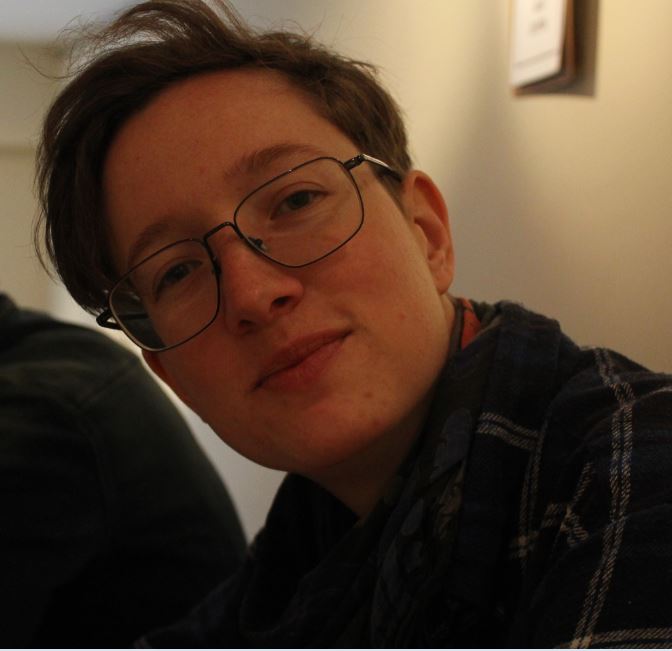„Ally is a person who wants to support a marginalized group of persons, but is not part of this group.“ (chescaleigh). How can this ally-concept change the way we work in the Phiren Amenca network?
My task as intern in Phiren Amenca was to include the gender guidelines developed by the spring seminar 2014 “Beyond Roma and Diversity” into the 2nd edition of the “Boogie Man Complex” Phiren Amenca educational toolkit. It became very clear that more than gender needs to be taken into account. For the work of Phiren Amenca it is important to look on the intersections of race, class, gender, disabilities etc. Because all of them influence the way we work and interact. Even without doing it consciously. How can we, as Roma and Non-Roma, reflect on these different power relations in the network and its work?
This question led me to the concept of acting as an ally. The Youtuber Chescaleigh (check: https://www.youtube.com/watch?v=_dg86g-QlM0) introduces the concept in five steps:
1) Understand your privilege
2) Listen and educate yourself
3) Speak up, but not over
4) Learning process and apologize
5) To be an ally means doing!
In the following these steps are adapted to the work-field of Roma and Non-Roma in Phiren Amenca:
The first step “Understand your privilege” is to become more aware of own privileges and power-structures, by raising questions like: Do you have access to medical care/ education? Do you suffer street harassment? Do you have the same rights than other people? It is difficult to become aware of the often invisible privileges that one perceives as normal. In a privileged position one is never forced to reflect on the power-structures. In comparison in a discriminated position one has to deal with it on a daily basis.
For Phiren Amenca it is relevant to ask: How do we deal with racism/ white privilege within the organisation? Who talks about whom? Who is in power position/ Who is employed for which position (is the different position privileged/ discriminated taken into account?) Is power-shared? Are POC/Roma people used as token (used as representation of a whole group/ used to demonstrate „diversity“/ “Othering” without being in a decision making position? These questions are focusing on the reflection of racism. Further questions due to gender, class, disabilities, age and their intersections have to be raised and answered!
For the second step it is absolutely important to listen actively and openly. Hear and understand what a discriminated person or group have to say! For my understanding of racism the testimonies of several participants of the Phiren Amenca fall seminar 2015 had a huge influence on me. I am still grateful for all who shared their experiences! This does not mean that people in a discriminated position are responsible to explain everything! It is not ok to make them talk about their vulnerable experiences all the time. It is important to become active and educate oneself, e.g. read online and/or offline, watch movies and/or documentaries, go out and visit exhibitions.
The next step “speak up, but not over” means, listen to the person you want to support. Understand what kind of support the person wants. Become aware about your speaking position and do not abuse your privileged position. This is always the priority. With this knowledge you can learn when to speak and when not. You can use your privilege and voice to educate others, but don´t speak over or take the credits. Do ask yourself: For whom it is easy to speak and to be heard? In a privileged position it is important to give space to the people around you. In a white privileged position you could intervene in situations where someone is being discriminated and use your privilege to support. In an other volunteer seminar we became more aware on racism and discrimination and practised interventions through the method of forum theatre (check: Toolkit 8 p.78: http://pjp-eu.coe.int/documents/1017981/1667925/tkit8.pdf/e7eb677d-aac9-4a24-8e4e-96f11df03dcd).
The forth step “learning process and apologize” says to act as an ally is a learning process. We have to understand discrimination and become aware of it. We live in a discriminating society and everyone is part of this society. If you are called out for your discriminating behaviour, then listen. Even if you feel bad/ashamed/angry. Listen well, try to understand, apologize and commit to change. Not the intent, but the impact on other persons matters!
The last, maybe most difficult step is “to be an ally means doing”. It becomes important to start thinking how could I personally act as an ally? To reflect yourself you could ask: Where do I reproduce discrimination? What do I know about racism or other forms of discrimination? How can I act against racism? To be an ally is an act of doing and not an identity. It is not enough to have a privilege check-list. It is a personal approach that tries to weaken the power structures we are surrounded with. It might not be changing all discriminating structures. But we can become more aware of different power structures that are depending on the situation and the persons involved. In words of Patricia Hill Collins, who sums up one of Audre Lords poems: “Change starts with self, and relationships that we have with those around us must always be the primary site for social change.”
Thanks to people who inspired and motivated me:
franz_i, Pia, Vicente, the kolloquium on intersectional research of prof. dr. lann hornscheidt at the HU Berlin and the Phiren Amenca Office team!
March, 2015 by Tina Heise
Information about the author:
Tina Heise, doing a 3-month internship in Phiren Amenca, writing on the intersectional guidelines for the 2nd edition of the “Boogie Man Complex” educational toolkit. Student of socio-cultural studies MA in Germany, Frankfurt Oder. Volunteering in a group who is counselling refugees in a refugee camp in Frankfurt Oder.


